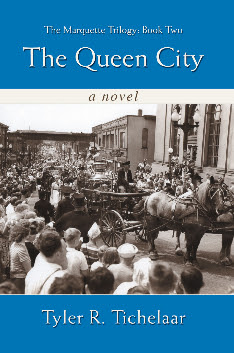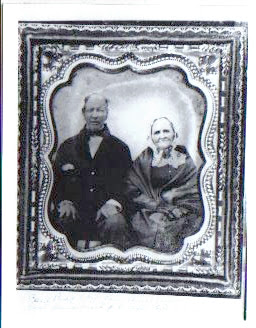There’s No Place Like Home
Learning about the world is a crucial part of any education. But what about your own home town? What do you know about it? Whether yours is a huge city or a small town, it has an interesting history waiting to be discovered. You and your children can do the research together and share your findings with the rest of your family and friends. After all, it makes sense for a true wandering educator to be an expert in his own town before exploring the rest of the world!

Pioneer Cover Photo
To help you figure out just how to research the history of your local area, I’ve interviewed novelist and local historian of Michigan’s Upper Peninsula, Tyler R. Tichelaar, Ph.D. Tyler is the author of the regionally bestselling The Marquette Trilogy, a family saga covering seven generations between 1849-1999 and centering on the pioneers who settled Upper Michigan. He is also the author of Narrow Lives and The Only Thing That Lasts, the latter of which will be published next month.

The Queen City
DG: How long has your family lived in Michigan’s Upper Peninsula?
TT: My ancestors arrived here in 1849, the year the City of Marquette was founded. They came because iron ore was discovered in 1844 ten miles south of Lake Superior. Marquette was built as a harbor on Lake Superior to ship the iron ore from the local mines to cities like Pittsburgh, to be turned into steel.
DG: What inspired you to become interested in the history of your own town and region?
TT: My grandpa told me stories about growing up in Marquette, and stories about his parents and grandparents. I became curious to learn more about my family history. I found that my family history was tied to Marquette’s history through the iron industry, through buildings my ancestors constructed, through churches and organizations they joined or founded.

Basil and Elizabeth Bishop, Tyler's great-grandparents
DG: How did you incorporate the history of your local region into your novels?
TT: I set out to write a series of novels about the history of Upper Michigan. The main characters had their own stories, but they were set against the local historical events such as the fire of 1868 that burned down Marquette. In the novels I also incorporated how outside events affected the town, such as the men from Marquette who went off to fight in the World Wars.
DG: What would you recommend others do to get started researching their own towns?
TT: Start by visiting your local history museum. Also go to the local library—they are sure to have local history books.
DG: What else can they do?
TT: If your family is from the area, talk to your grandparents or older family members. Find out about your family’s involvement in the town. Make a family tree with birth and death dates. Visit the courthouse in your town and look at death records—they will usually give the person’s parents’ names, which may allow you to trace your family back many generations.
DG: You have told me that your research helped you uncover details about your own ancestors. Can others expect to do the same when they research their own towns?
TT: Absolutely! You will be surprised by the roles your ancestors played in a town’s history. Every life is important. It doesn’t matter if your great-grandfather was the mayor or a potato farmer, a carpenter or a banker. Everyone had a role that contributed to building that town.
DG: What do you suggest people do with the information they gather?
TT: Write it down. Get a genealogy program for your computer so you can keep it straight. Be willing to share your information with other family members. Hopefully they will return the favor.
DG: Other than basing your novels on your local history, how else has the knowledge about your region been beneficial to you or others?
TT: I learned more about history by researching my town and family than I ever learned in school. Marquette played a major role in U.S. history that most people don’t know about—it was the “Queen City of the North”—the iron ore from Upper Michigan was integral to winning the Civil War and World Wars. Louis Kaufman of Marquette funded the Empire State building. Henry Ford was very involved in Upper Michigan. Most importantly, I came to realize how important every individual was. I realized if just one of my ancestors had not existed, I would not be here today. We owe everything to our ancestors and their struggles so we could have all we have today. I constantly find strength in their courage and perseverance.
DG: Any closing comments?
TT: Get started now. You’ve probably wanted to research your family tree or visit that local museum for years. Now is the time. If you want to write down the family history, quit saying “Someday.” If you only write one page a day, you’ll have a book before the year is over. The past is a present that can change your life. Go out and discover it.

Tyler R. Tichelaar, Ph.D.
Tyler won First Place for his Novel Narrow Lives in the Historical Fiction Category in the Reader Views Literary Awards 2008. Bravo, Tyler!
For more information about Tyler, his books and author services, visit www.MarquetteFiction.com
Debbie Glade/smartpoodle is the Geography Awareness Editor for Wandering Educators.
-

- Log in to post comments


















